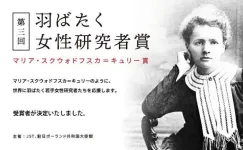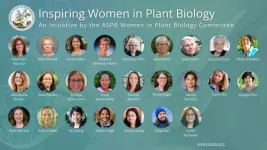Over the last decade, options have evolved from double, to triple to quadruple combination therapies. What do these new options mean for patients, and how will treatment change in the future?
C. Ola Landgren, M.D., Ph.D., will address these questions and more June 3, at the 2024 annual meeting of the American Society of Clinical Oncology (ASCO). He was tapped to discuss new studies on combination therapies and provide his perspective on the field for the audience of scientists and physicians.
“These are great improvements for patients, and they deliver deep responses,” said Landgren, chief of the Myeloma Division and director of the Myeloma Research Institute at Sylvester Comprehensive Cancer Center, part of the University of Miami Miller School of Medicine.
Below are highlights from a Q & A session with him focusing on this ASCO session titled “The More the Better? Quadruple therapy in newly diagnosed myeloma.”
What is quadruple therapy in the setting of newly diagnosed multiple myeloma?
Quadruple therapy means that you typically add a monoclonal antibody drug, currently that means a CD38-targeted antibody, to the backbone of small molecule drugs standardly used to treat patients. The backbone typically consists of a proteasome inhibitor, which targets the cell’s protein degradation machinery; an immunomodulatory drug; and a steroid. The CD38-targeted monoclonal antibodies are immunotherapies designed to identify myeloma cells by binding to a cell surface protein (CD38) expressed on them.
You will highlight three studies being presented at ASCO, as well as previous studies. What is their focus?
The studies are testing the hypothesis that the addition of an antibody will provide deeper responses in more patients, and a longer duration of the clinical benefit of progression-free and overall survival. The implications are that patients can live longer without having the disease come back, and live longer overall.
How might quadruple therapy change treatment in the long term?
It could have additional implications beyond the clinical outcomes, and impact how we use other therapies. People have been thinking, do you need to transplant patients if you have already delivered these four drugs and there is no detectable disease? That is a very relevant clinical question. I think that many patients probably don't need a transplant. Ongoing studies are looking into that and other related questions.
We are already seeing that immunotherapies can narrow the gap between younger fit patients and older patients, who may not have tolerated past therapies that typically that had more severe adverse event profiles. Overall, immunotherapies are both effective and tolerable.
Going forward, researchers are also already evaluating how to incorporate newer, “bispecific” monoclonal antibody immunotherapies, which are targeting cell surface proteins such as BCMA, GPRC5D and FcRH5.
Tell us more about potentially reducing the need for bone marrow and stem cell transplantation.
There are a lot of clinical trials trying to look into this, and we're leading one of those trials at the University of Miami, the ADVANCE trial. It’s also possible that in the future some patients may have CAR T-cell therapy instead of transplants. And we are just about to open a new study using a fixed duration of bispecific monoclonal antibodies instead of transplants. These are questions that are now coming up.
Not all patients who might benefit are currently treated with the newer drugs. Can you speak more about this?
Key factors are access to newer drugs as well as treatment traditions. For instance, not all drugs are available in all countries outside the U.S., and within the U.S. some physicians are early adopters while others are slower to update treatment strategies. Myeloma experts who treat large numbers of patients may feel more comfortable implementing newer strategies sooner, compared to more general hematology/oncology physicians who only treat a handful of new multiple myeloma patients every year.
We are collaborating with many general hematology/oncology physicians, and we are happy to share our experiences and strategies. It is all about teamwork — to better help patients with multiple myeloma.
Please tell us a little bit about the future of precision medicine, quadruple therapy, and newer measurements to detect small numbers of tumor cells.
We can now detect patient tumor cells with sensitive tests for minimal residual disease (MRD). Based on available data, you can achieve MRD negativity quite early on with quadruple therapy. We can use MRD as a measurement to assess patient response and guide the course of treatment. We recently published a study identifying patient genomic and immune signatures that correlate with MRD-negativity and clinical outcome after quadruple therapy. These kinds of approaches will help us pick the right therapy for each individual patient.
MRD will also speed up the development of new therapies. A key FDA committee recently voted to allow MRD as an early regulatory endpoint in multiple myeloma, based in part on our analysis.
What are some of the key studies opening up the field of quadruple therapy?
Between 2019 and 2021, researchers published key clinical trials, including CASSIOPEIA, GRIFFIN, and MANHATTAN, which I led with my colleagues. In December, researchers published the phase 3 PERSEUS trial. All these studies used a CD38-targeted monoclonal antibody called daratumumab, but the drugs chosen for the backbone varied in the studies. The GMMG-CONCEPT and IsKia trials assessed another CD38-targeted monoclonal antibody, isatuximab. There are other trials as well.
What more will the audience hear at the session you are leading?
They will hear about different types of antibodies for CD38-targeted approaches. First, there was daratumumab, and now there is isatuximab — in some ways it’s almost like the difference between Pepsi and Coca-Cola.
They will also hear updated information on the PERSEUS study, particularly focusing on MRD. That's a very hot topic. You will hear how this all comes together with the different antibodies added to the backbones, and how this translates into MRD-negativity and patient clinical outcomes. This is where the field is right now. The future is looking bright for patients with multiple myeloma.
about Sylvester research on the InventUM Blog and follow @SylvesterCancer on X for the latest news on its research and care.
# # #
END




